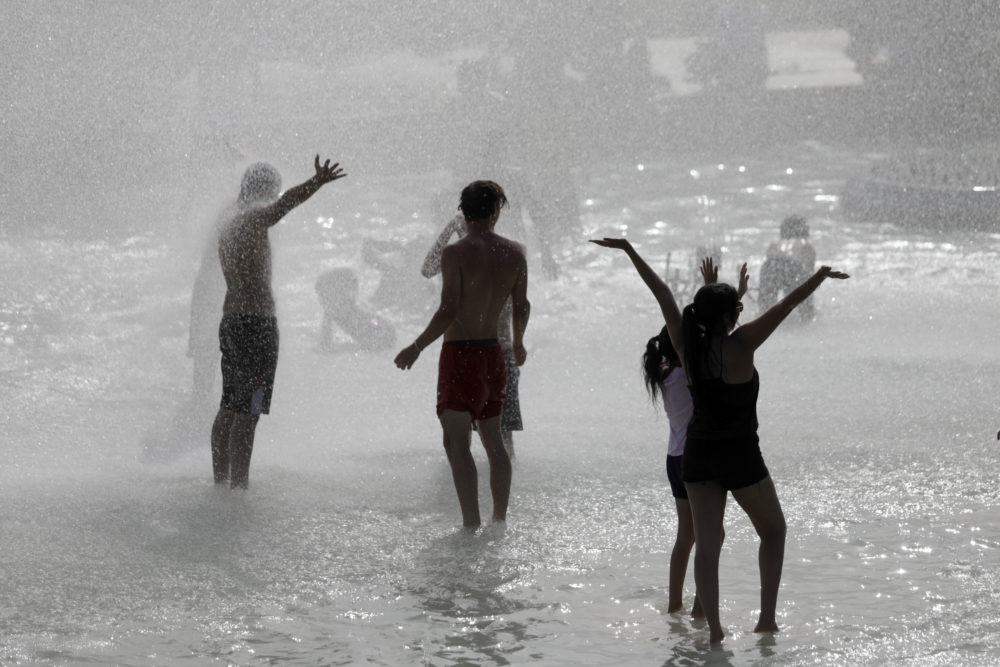Advertisement
Commentary
The Great Air-Conditioning Debate

Summertime, and the livin’ is — hot as hell. While others wilted in the recent heat wave, I rejoiced, retaining my childhood love of this season above all others. Yet the arc of life has brought me full circle on the June-through-August ritual of air-conditioning. Its effects on climate change and the family budget concern me more as a 21st-century adult than they did as a 20th-century kid.
Before third grade, I lived in a New Jersey home with a single, window air-conditioning unit that cooled the adjoining bedrooms. It was our oasis from the swelter. Then, in the summer of 1967, my family moved to a new home, and leapt eons into the future (or so it seemed) by acquiring central air-conditioning.
That technology approximated for me the feeling of freedom other Baby Boomers got from their first laptop. The entire house cool in summer! No more stepping, in a split second, from refreshing bedroom to roasting hall, heat and humidity coating your whole body like a turkey in a broiler. No more retreating to a single room for relief; you could read, sit and talk, or just be in any room in sweat-less splendor.
Fifty-two years later, 1967’s Summer of Love has given way to the Summer of Climate Change, and my infatuation with air conditioning is officially over. Record heat now fans wildfires in France, while the flames in Spain trigger multi-village evacuations; 100-plus dehydrated runners collapse during a German race; and Italy declares heat-related red alerts from Venice to Naples.
Two days before America’s 243rd birthday last week, we observed the 117th birthday of the Brooklyn-born AC, the operation of which is an environmental scourge. Our air conditioners emit 100 million tons of planet-warming carbon dioxide annually. They're part of the 12% of U.S. greenhouse gas emissions attributable to business and household activities.
It may be “hipster sanctimony,” as one writer dubbed it, to criticize AC while ignoring the equal-or-greater contribution to climate change from heating buildings (for which benign alternatives, like wearing layers in winter, are available). But that rejoinder is its own rejoinder: Human-engineered heating and cooling both warm the planet, and there are greener ways to ward off Messrs. Heat Miser and Snow Miser.
It’s an apt time to ponder the unthinkable: Is summer survivable without air conditioning?
(Let’s dispense right away with the climate change deniers. According to the World Meteorological Organization, “It is premature to attribute the heat wave to climate change, but this is consistent with climate scenarios which predict more frequent, drawn out and intense heat events as greenhouse gas concentrations lead to a rise in global temperatures.” Europe’s hottest summers in the last five centuries have all occurred in the last 17 years.)
Advertisement
... When I'm home alone, I opt for the fan; and my loved ones use the AC when they need to.
Americans might be tempted to answer my question: Of course we can’t live without AC. How else do we avoid Europe’s heat wave-induced deaths in recent summers? It’s true that deployment of air conditioning to 90% of American households (second only to Japan, according to the New York Times) is expected to increase as the wealthy in other parts of the globe demand the luxury.
It’s also true that our discussion of AC drifts into narcissism and trivial gender politics. The Times article was as much about the writer’s workmates and their varying levels of tolerance for offices made cold by air conditioning, as climate change. The piece cited a study suggesting that office ACs were engineered for the “Mad Men” era, when workers were overwhelmingly men in suits; today, that supposedly sexist hangover leaves our modern, more feminized workforce shivering. But the critique is antiquated. Today’s AC temperatures are set according to variables that include women’s clothing. The target is to keep the vast majority of occupants, 80 percent, comfortable.
The AC-or-not divide reaches into my home. My wife and son are more heat-sensitive and need air conditioning, but I've discovered that a less energy-gobbling fan cools me sufficiently, as long as its blowing directly on me. (Fans don’t cool a room, but rather cool your body by wafting air on it.) So, when I'm home alone, I opt for the fan; and my loved ones use the AC when they need to. It's a compromise similar to the enlightened approach the Times found at Philadelphia architectural firm Kieran Timberlake.
Philly, 45 minutes from my New Jersey childhood home, knows hot summers. After experimenting with AC-less cooling (fans, open windows, automated shades, dehumidifiers, warm-weather dress codes), Kieran Timberlake settled on a mix of these measures and limited, as-needed AC, which raised the building’s energy load by a negligible 1% to 2%.
Maybe corporate America can preserve civil relations among workers with this approach (as my family preserves household relations) while helping to save the planet? This consummate centrist hopes such a compromise might make others treasure summer as I do.
Remember: Winter’s just five months away.
